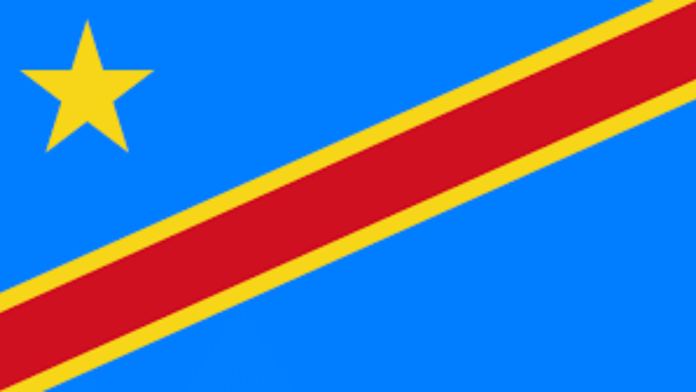Thank you dear subscribers, we are overwhelmed with your response.
Your Turn is a unique section from ThePrint featuring points of view from its subscribers. If you are a subscriber, have a point of view, please send it to us. If not, do subscribe here: https://theprint.in/
The safety of women prisoners is the paramount duty of every country. Sexual assault against female inmates remains a widespread issue, with human rights activists continuously raising their voices at the international level regarding such violations. But what happens when a country repeatedly fails to protect its female inmates from similar incidents? Who will be responsible for such failure?
The Democratic Republic of Congo experienced a horrendous event on January 27, 2025, where 150 women prisoners were raped and burned alive at Muzenze Prison in Goma during a mass jailbreak mainly carried out by male prisoners. The event took place because M23 rebel forces were in battle with Congolese forces and caused a mass jailbreak releasing around 4,000 inmates. Later, the male inmates invaded the women’s wing and assaulted at least 165 of them. The women’s wing was then set on fire, and as a result, many people died in the fire. As per report nearly 150 women were burnt alive in this incident and only 9-13 women have survived from the chain of brutal violence.
It has become a matter of discussion on a world level because of the safety of women prisoners in Muzenze Prison. The problem is more pronounced in the struggling east Congo regions, where conflicts between Congolese forces and rebel groups have been more frequent in past years. The United Nations has been able to trace personal losses through executions and other sex attempts, sometimes done by M23 and other times by army loyalists. UN High Commissioner for Human Rights, Volker Türk, has demanded an immediate suspension of military aggression and strict compliance with international human rights regulations in Congo. In armed conflict areas, rape is a frequently mentioned issue, with children and women getting the most out of it. The event of Muzenze Prison is a point that exposes the extreme problems faced by the prison system within Congo, including too many inmates, lack of security, and in sufficient protection to vulnerable inmates. However, the problem is not only the conflict between the M23 rebels and the Congolese army as similar incidents took place before. In 2024, one mass escape attempt was made at the Makala Central Prison in Kinshasa, for which 129 prisoners died and 59 were injured. During the chaos, several female inmates were raped. Human Rights Watch interviewed three prisoners from that prison who reported that, on the morning of September 2, suspected members of the youth gang known as kulunas attempted a mass escape. As a result, multiple prison buildings caught fire, and sexual violence ensued. A female inmate recounted witnessing multiple men assaulting women, including an elderly woman, adding that none of the victims received proper medical treatment. Similarly, in September 2020, a riot at Kasapa Central Prison in Lubumbashi led to a fire in the women’s section, forcing female inmates into the main prison yard for three days without protection. During this period, male prisoners repeatedly raped several women, including a teenage girl which is against the International Law standards as in no scenario women and children can be kept in the male cell or in the solitary confinement.
These three incidents clearly indicate that Congo’s prison system is not only mismanaged but has also failed to implement the Mandela Rules and the Bangkok Rules. Overcrowding, insufficient staff, and poor infrastructure have turned prisons into living hells, particularly for women and children, who are the most vulnerable. The extreme overcrowding at Makala Prison is evident from the fact that it was originally built in 1957 for 1,500 inmates but now houses between 12,000 and 14,000—almost ten times its capacity. This statistic alone highlights the dire state of the prison system.
The recurring violence in Congolese prisons underscores the urgent need for separate and secure facilities for female prisoners. There must be proper infrastructure and enhanced security measures, especially in conflict-prone regions. It is high time for the Democratic Republic of Congo’s government to reform its prison system in accordance with international legal standards.
As for now almost every country of the world is struggling with prison overcrowding. Countries should explore the alternatives to incarceration to alleviate the crisis. Releasing undertrial prisoners could also help reduce congestion. Every country must take lessons from this incident and address the issue of overcrowding with urgency. Every country should strongly implement the Mandela Rules and the Bangkok Rules in their prison system as these regulations are designed to safeguard prisoners’ human rights. The atrocities at Muzenze Prison in Goma are not only horrifying and inhumane but also a blatant violation of international legal standards, including the Convention on the Elimination of All Forms of Discrimination Against Women (CEDAW) and Resolution 1325. In 1995, the African Commission on Human and Peoples’ Rights, in its resolution on African prisons, acknowledged that African countries must conform to international norms and standards for protecting prisoners’ human rights. However, even after 30 years, prison conditions have only worsened, with increasing cases of violence, torture, and sexual abuse.
Dr. Pyali Chatterjee, HOD, Assistant Professor, Faculty of Law, ICFAI University, Raipur, Chhattisgarh, India
These pieces are being published as they have been received – they have not been edited/fact-checked by ThePrint.


